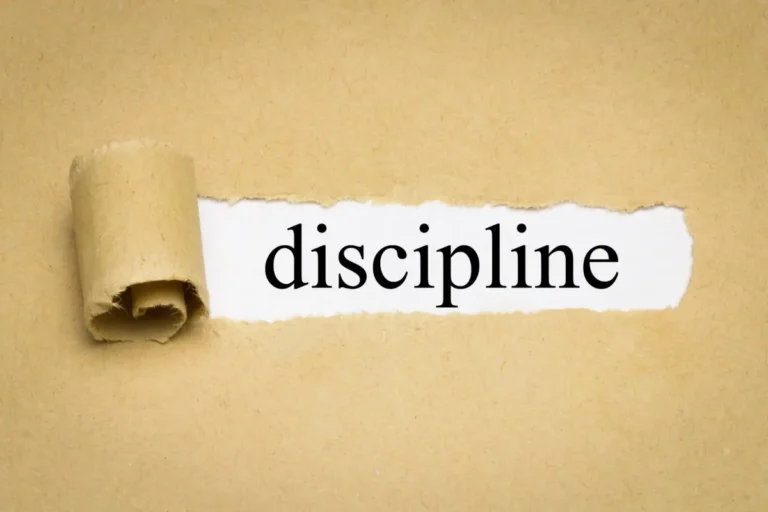Procrastination: Significant Ways to Overcome It
How to Overcome Procrastination is a serious question that most of us try to find the solution to in every day’s life. Procrastination is a common challenge that affects people across all walks of life. Whether it’s delaying a work task, postponing a school assignment, or even putting off daily chores, procrastination can severely hinder productivity and lead to unnecessary stress. But what exactly is procrastination? Why do we engage in it, and how can we overcome it? In this comprehensive article, we will explore the causes, consequences, and strategies to beat procrastination and regain control over your time and life.
What is procrastination?
At its core, procrastination is the act of delaying or postponing tasks. It often involves choosing to do more pleasurable activities over necessary, sometimes less enjoyable, tasks. Procrastination is not simply laziness; it is more complex and can be influenced by psychological, emotional, and cognitive factors.
There are two types of procrastination: active and passive procrastination. Active procrastinators deliberately delay tasks because they believe they perform better under pressure, while passive procrastinators put off tasks out of fear, indecision, or lack of motivation. Both types can lead to detrimental outcomes if not managed effectively.
Procrastination vs. Laziness
Procrastination is often confused with laziness, but the two are not synonymous. Laziness refers to an unwillingness to do work, while procrastination is more about avoidance. People who procrastinate are usually aware of their responsibilities and often feel guilty about postponing tasks, unlike those who are lazy, who tend to avoid work altogether without a sense of urgency. Procrastinators want to complete their tasks but get trapped in cycles of delay.
The Causes of Procrastination
Understanding the reasons behind procrastination is the first step toward overcoming it. The following are some common causes:
- Fear of Failure
Many individuals procrastinate because they fear failure or are afraid of not meeting expectations. This fear can paralyze them, leading them to avoid tasks where they feel uncertain about the outcome. - Perfectionism
Perfectionists often delay tasks because they set unrealistically high standards for themselves. The desire to get everything “just right” can cause them to put off starting a task for fear that it won’t meet their ideal vision. - Lack of Motivation
Tasks that seem tedious or unimportant can lead to procrastination simply because there is no intrinsic motivation. Without a clear “why,” it’s easy to delay tasks. - Overwhelm
Sometimes, tasks seem so large or complex that they appear unmanageable. When people feel overwhelmed, they are more likely to procrastinate because they don’t know where to start. - Distractions and Lack of Focus
In today’s digital age, distractions are everywhere. Social media, streaming platforms, and constant notifications can easily divert attention, making it hard to concentrate on the task at hand. - Time Mismanagement
Poor time management can also contribute to procrastination. Not allocating specific time slots for tasks can cause them to be perpetually postponed.
The Consequences of Procrastination
Procrastination may offer temporary relief, but its long-term consequences are far from benign. Here are some of the negative outcomes:
- Increased stress and anxiety: the longer a task is delayed, the more stress it generates. Deadlines become closer, pressure builds, and the fear of underperformance heightens.
- Missed Opportunities: By postponing important tasks, procrastinators may miss valuable opportunities in their personal and professional lives.
- Reduced Productivity: Procrastination leads to decreased efficiency, meaning that tasks take longer to complete, and overall productivity drops.
- Lower Quality of Work: Rushed work often results in lower-quality output as procrastinators scramble to complete tasks at the last minute.
- Damage to personal and professional reputation: Chronic procrastination can lead to a negative reputation, with others perceiving procrastinators as unreliable or uncommitted.
- How to Stop Procrastination in Daily Life
Many people struggle with procrastination in their daily lives, often delaying important decisions, personal goals, or simple chores. To stop procrastination, it is essential to understand that overcoming procrastination is a process. Breaking tasks into smaller, manageable parts, eliminating distractions, and focusing on short-term goals are effective strategies to prevent procrastination from taking over daily routines. - Procrastination and productivity: are they connected?
There is a clear connection between procrastination and productivity. Procrastination hampers productivity by reducing the time available to complete tasks, often leading to rushed work and diminished results. For people looking to boost productivity, reducing procrastination is key. Time management strategies, such as the Pomodoro Technique or time-blocking, can be powerful tools in beating procrastination. - Why Do Students Procrastinate?
Academic procrastination is a widespread issue among students. Whether it’s cramming for exams or postponing research projects, procrastination in academia can lead to poor performance and stress. Identifying the reasons why students procrastinate, such as lack of interest in the subject, difficulty in understanding the material, or fear of failure, can help in creating targeted strategies to combat procrastination in educational settings. - Overcoming Procrastination Tips for Professionals
In the professional world, procrastination can result in missed deadlines, poor job performance, and strained workplace relationships. For professionals seeking to enhance their career trajectory, learning how to stop procrastinating is essential. Some effective tips for overcoming procrastination at work include setting clear priorities, using productivity apps, and holding oneself accountable through regular self-check-ins.
Strategies to Overcome Procrastination
Now that we understand the causes and consequences of procrastination, let’s explore some practical ways to overcome it. These strategies can help both individuals and professionals in beating procrastination and improving productivity.
- Set clear goals.
One of the most effective ways to stop procrastination is to set clear, achievable goals. When tasks are well defined, it’s easier to know where to start and how to move forward. Use the SMART method (Specific, Measurable, Achievable, Relevant, Time-bound) to set concrete objectives. - Prioritize Tasks
To overcome procrastination, prioritize your tasks by importance and urgency. The Eisenhower Matrix is a useful tool that helps individuals distinguish between urgent and important tasks, ensuring that essential tasks are completed without delay. - Break tasks into smaller steps.
Large projects can feel overwhelming, which often leads to procrastination. Breaking them down into smaller, more manageable steps can make them feel less daunting. Focusing on completing one small task at a time can help maintain momentum and prevent procrastination. - Use time management techniques.
Effective time management is key to fighting procrastination. The Pomodoro Technique, which involves working for 25-minute intervals followed by short breaks, can increase focus and reduce the likelihood of distractions. Time-blocking, where specific tasks are assigned to certain times of the day, is another effective strategy. - Eliminate Distractions
In today’s technology-driven world, distractions are a major cause of procrastination. Minimizing distractions by turning off notifications, creating a quiet workspace, and setting specific times for social media use can greatly improve concentration. - Practice mindfulness and focus.
Mindfulness exercises can help individuals become more aware of their thoughts and habits. By practicing mindfulness, procrastinators can identify when they are avoiding tasks and consciously bring their focus back to the task at hand. - Seek Accountability
Having someone to hold you accountable can be a powerful motivator. Whether it’s a friend, colleague, or mentor, sharing your goals with someone can provide the encouragement you need to follow through on tasks without procrastinating. - Reward yourself for small wins.
Positive reinforcement can be a great way to build new habits. Reward yourself when you complete a task, no matter how small. This helps create a positive association with productivity and reduces the urge to procrastinate.
The Best 20 Procrastination Quotes to Read and Apply in Your Life
Here are 20 powerful quotes on procrastination to inspire action and help overcome the habit of delaying tasks:
- “Procrastination is the thief of time.” Edward Young
- “You may delay, but time will not.” Benjamin Franklin
- “Procrastination is the foundation of all disasters.” Pandora Poikilos
- “Procrastination is opportunity’s assassin.” Victor Kiam
- “Procrastination is like a credit card: it’s a lot of fun until you get the bill.” Christopher Parker
- “A year from now you may wish you had started today.” Karen Lamb
- “The only difference between success and failure is the ability to take action.” Alexander Graham Bell
- “To think too long about doing a thing often becomes its undoing.” Eva Young
- “Procrastination makes easy things hard, hard things harder.” Mason Cooley
- “Do not act as if you had a thousand years to live.” Marcus Aurelius
- “Nothing is so fatiguing as the eternal hanging on of an uncompleted task.” William James
- “It’s not that I’m so smart; it’s just that I stay with problems longer.” Albert Einstein
- “Procrastination is the art of keeping up with yesterday.” Don Marquis
- “The secret to getting ahead is getting started.” Mark Twain
- “If you want to make an easy job seem mighty hard, just keep putting off doing it.” Olin Miller
- “Begin while others are procrastinating. Work while others are wishing.” William Arthur Ward
- “The way to get started is to quit talking and begin doing.” Walt Disney
- “Procrastination usually results in sorrowful regret.” William James
- “You don’t have to see the whole staircase; just take the first step.” Martin Luther King Jr.
- “Procrastination is the bad habit of putting off until the day after tomorrow what should have been done the day before yesterday.” Napoleon Hill
Conclusion
To sum up, how to overcome procrastination is a pervasive issue that can severely impact both personal and professional lives. While it may seem like a harmless habit at first, procrastination can lead to increased stress, reduced productivity, and long-term dissatisfaction. However, by understanding its causes, consequences, and strategies to overcome procrastination, it is possible to break free from the cycle of delay and regain control over your time and actions.
Overcoming procrastination requires effort, but the rewards are well worth it. By applying time management techniques, breaking tasks into smaller steps, setting clear goals, and eliminating distractions, you can master the art of action and live a more fulfilling, productive life. So, stop procrastinating today and take the first step towards becoming the best version of yourself! At SVEnlightment, we believe in empowering you to take control of your time and achieve your goals.







 Introduction: The Most Important Project Is YOU Personal development is the key to success in any field;…
Introduction: The Most Important Project Is YOU Personal development is the key to success in any field;…